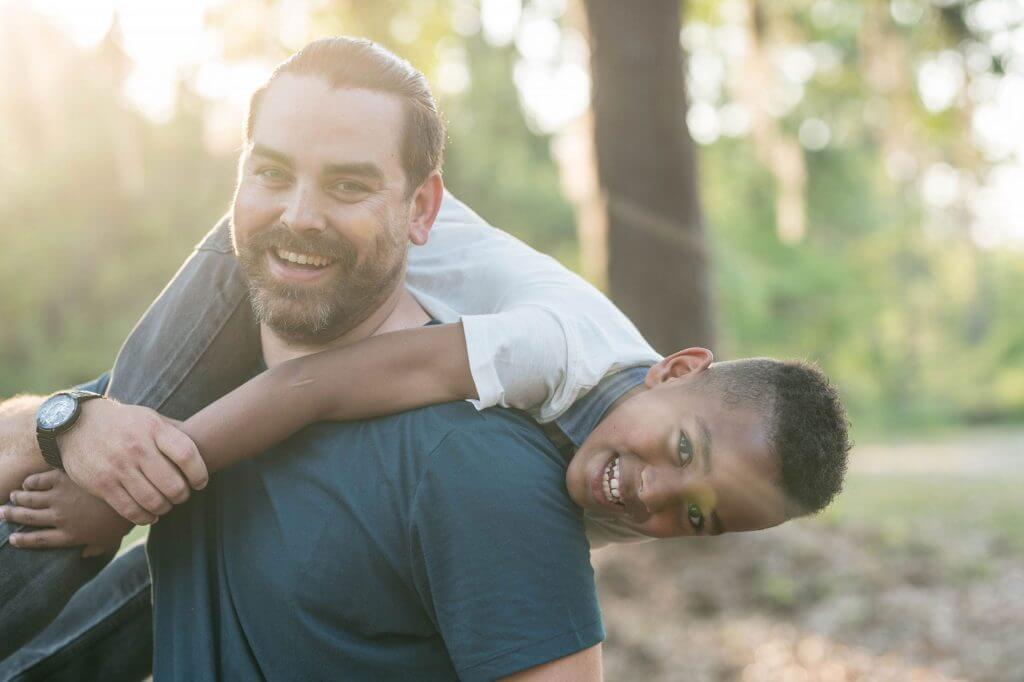Foster Care 101: Your Guide to Foster Care Awareness Month

Guest post by Sarah Wilson of The Forgotten Initiative, an advocate ministry of Lifesong.
May is Foster Care Awareness Month.
We at The Forgotten Initiative believe that awareness leads to action. We believe that when the body of Christ hears about foster care and learns about needs and ways they can get involved, they are willing to step into this space. The more we know, the better equipped we are to serve and care for those around us. We dream about people everywhere supporting the foster care community and experiencing Jesus together.
I think that, as humans, we have a natural tendency to avoid information that is hard, convicting, or challenging because we know that if we fully understand it, a change is going to have to be made. And change is hard. Ignorance is bliss, you know what I mean? I know I have fallen victim to that myself. I think it can happen without even realizing it!
But gradually my eyes have been opened and my heart has been changed. And honestly, I hope yours is, too.
Through the month of May, I want to challenge you to seek to gain awareness and understanding about foster care if you have not already. And encourage a friend to do so, too!
Before we can get there, though, we need to start with the basics:
What is foster care?
Foster care is a temporary arrangement in which adults provide care for children whose birth parents are unable to do so for a variety of reasons. While this can occur in an unofficial fashion, this is something that is primarily arranged through the courts or social service agencies.
The goal of foster care is for the child to return home to their birth parents. Of course, this is not always possible. And in that scenario, the goal of the case would be adjusted to adoption. The court is always seeking to make decisions that are in the best interest of the child and to keep them safe.
According to the most recent reports, there are over 400,000 children in foster care in the United States, and over 120,000 of those children are available to be adopted.

What is a foster parent?
A foster parent is an individual(s) who is a state-certified caregiver to the children that are placed in the foster care system. Foster parents do not legally become the child’s parents. These individuals receive the title by the process of a variety of screenings, classes, and background checks.
There are different types of foster parents—traditional, respite, relative/kinship, and emergency placements among others. Each foster parent is given the choice to determine what kind of cases they are open to, and have full freedom to accept or decline placements at any time.
How can I support the foster care community without becoming a foster parent?
There are a variety of ways you can support the foster care community that do not require you to become a foster parent. Consider some of the following options:
- Pray. Pray for agency workers, for foster parents, for kids in care, for biological families.
- Volunteer. Consider becoming a Court Appointed Special Advocate (CASA) or mentor.
- Give. Give financially, or with tangible items to agencies and organizations doing this work.
- Educate yourself. Read books, listen to podcasts, ask questions.
- Encourage. Find a foster family in your community and show up for them. Bring a meal, offer to babysit, be a listening ear. Support biological parents during this hard season. Bring a gift to a social worker you know who is going above and beyond.
- Advocate. Become a TFI Advocate in your community if you do not have one already. And spread foster care awareness to those around you.
While this is all good, practical knowledge, why does it matter?
Because it matters to God.
Because these children and their biological families are made in the image of God.
Because it allows us to follow Scriptural demands to care for the widow, the orphan, and the vulnerable.
Because had I been born into different circumstances, I would want someone safe and trustworthy to do the same for me.
Because it is a tangible way to live out the gospel in our own lives and recognize how much we need Jesus.
Because we can learn humility, compassion, and care for others.
Because through the challenges, we can have a deeper understanding of who God is, His character, and can be overwhelmed by His grace and mercy toward us.

Please hear me out, I do not believe that everyone is supposed to be a foster parent. But I do believe that every member of the Church has a role they can play in serving and caring for this community.
Wondering if becoming a foster parent is for you?
Check out this compilation of TFI’s blog posts that can help you explore those thoughts.
Getting ready to begin the foster care process?
Whether you’re just starting to think about fostering, in the home study process, setting up your home, or in the wait—here are some great blog posts to encourage you on this journey.